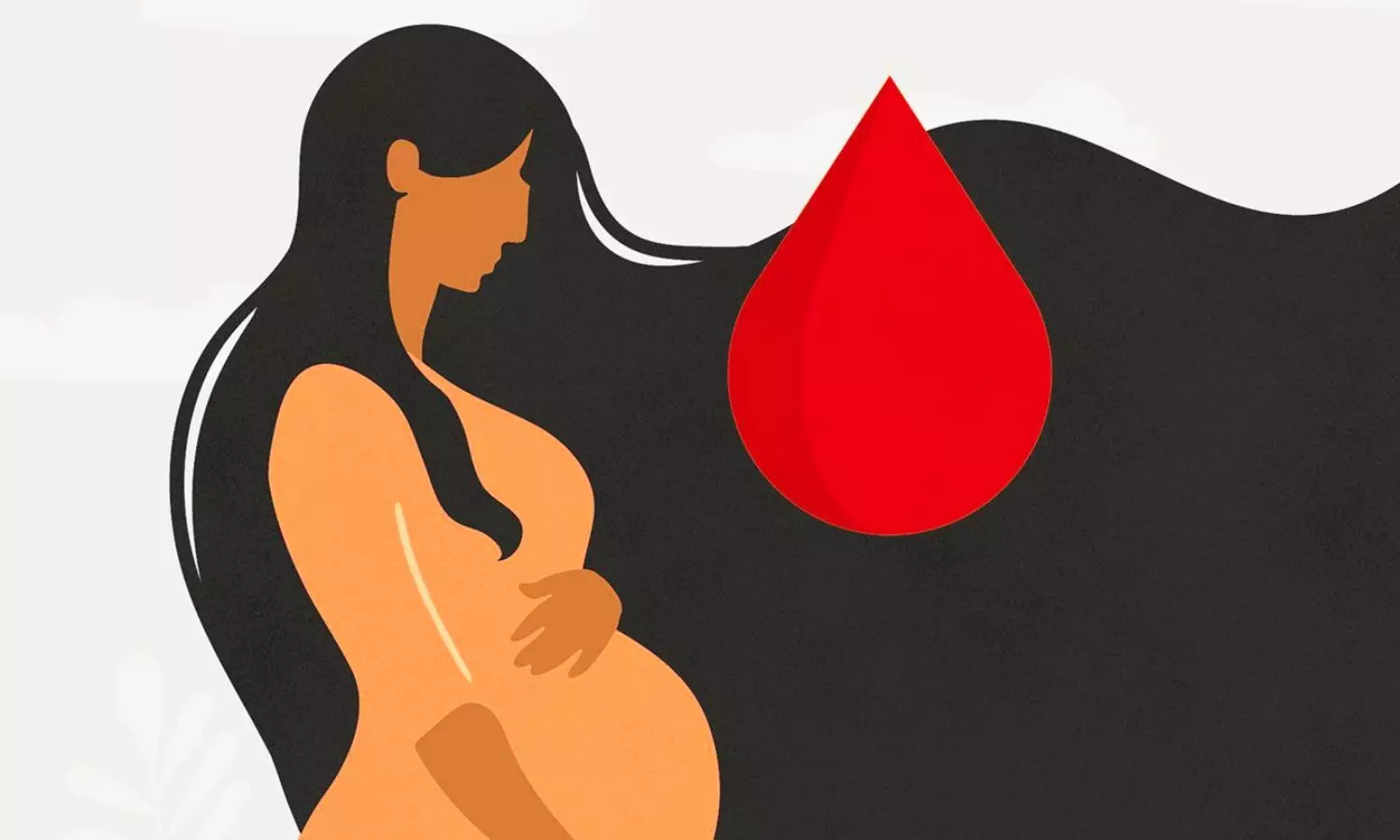Higher Postpartum Hemoglobin Levels Linked to Lower Depression Risk: Study
- byDoctor News Daily Team
- 24 October, 2025
- 0 Comments
- 0 Mins

Researchers found that women with higher levels of haemoglobin shortly after childbirth are less likely to develop symptoms of postpartum depression (PPD) two months later. With each increase in postpartum haemoglobin by 1 g/dL, the risk of developing depressive symptoms decreased by 9%. The study was published inAn International Journal of Obstetrics and Gynecologyby Lola L. and colleagues. This research was an ancillary study of the TRAAP trial (a multicentre French trial), and it determined the effect of early postpartum haemoglobinaemia on the risk of postpartum depression symptoms at two months. The population comprised women who experienced a singleton vaginal delivery beyond 35 weeks of gestation. Excluded from the population were women with pre-existing psychiatric disorders and those that were not responsive to the Edinburgh Postnatal Depression Scale (EPDS). Haemoglobin levels were measured routinely soon after delivery, and EPDS scores were measured at the two-month point in order to assess depressive symptoms. The exposure measure was maternal haemoglobin at the time of delivery. Postpartum depression was ascertained with the EPDS, with a score ≥11 regarded as indicative of depressive symptoms. These symptoms were also classified as moderate (EPDS 11–12) and severe (EPDS ≥13). Statistical analysis involved multivariable models that were controlled for factors known to be of relevance, enabling the researchers to measure the association between haemoglobin and risk of depression while adjusting for confounders. Key Findings Of 2,672 women in the study: 1,115 women (43.6%) developed postpartum anaemia (haemoglobin <11 g/dL). 369 women (13.8%) had symptoms of postpartum depression at two months. There was a linear correlation between haemoglobin concentrations and PPD symptoms. A 1 g/dL higher haemoglobin level was associated with a 9% reduction in the risk of postpartum depression symptoms (adjusted Relative Risk [aRR] = 0.91; 95% Confidence Interval [CI]: 0.82–0.997). Postpartum haemoglobin was strongly related to moderate depressive symptoms (aRR = 0.84; 95% CI: 0.72–0.98). There was no statistically significant relation with severe depressive symptoms (aRR = 0.95; 95% CI: 0.84–1.07). This research identifies a definite and quantifiable association between maternal haemoglobin concentration and risk of symptoms of postpartum depression in women giving birth vaginally. These results justify inclusion of standard haemoglobin screening and anaemia treatment in postpartum care guidelines, not merely for enhancing physical recovery but also for minimizing mental health complications among new mothers.
Disclaimer: This website is designed for healthcare professionals and serves solely for informational purposes.
The content provided should not be interpreted as medical advice, diagnosis, treatment recommendations, prescriptions, or endorsements of specific medical practices. It is not a replacement for professional medical consultation or the expertise of a licensed healthcare provider.
Given the ever-evolving nature of medical science, we strive to keep our information accurate and up to date. However, we do not guarantee the completeness or accuracy of the content.
If you come across any inconsistencies, please reach out to us at
admin@doctornewsdaily.com.
We do not support or endorse medical opinions, treatments, or recommendations that contradict the advice of qualified healthcare professionals.
By using this website, you agree to our
Terms of Use,
Privacy Policy, and
Advertisement Policy.
For further details, please review our
Full Disclaimer.
Recent News
DME Haryana round 3 NEET counselling dates revised
- 27 October, 2025
Hospital lapse: GB Pant website continues to name...
- 27 October, 2025
NEET counselling: MP DME releases final vacancies...
- 27 October, 2025
Daily Newsletter
Get all the top stories from Blogs to keep track.


0 Comments
Post a comment
No comments yet. Be the first to comment!